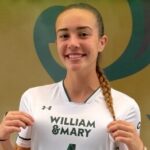Jefferson Cup: The strange history of the River City Sportsplex
By Michael Willis
RICHMOND, Va. – The long list of playing facilities used to host the Jefferson Cup includes a wide range of public and private parks and complexes. The River City Sportsplex in Midlothian, Va. is the largest, and might just hold the strangest backstory of the bunch.
On Friday I spoke to Scott Turner, executive director of the Richmond Strikers Soccer Club, about this magnificent, sprawling, complex which is hosting so many of his club’s tournament matches.
The history of the River City Sportsplex is one of bad timing and overly ambitious endeavors. At its inception in 2009-10 as a privately-owned project called SportsQuest, then-CEO Steve Burton envisioned the facility as an Olympic Village, of sorts, for central Virginia.
“He was an entrepreneurial type,” said Turner, “and he had this vision of creating a massive sports complex with outdoor fields, indoor velodromes, basketball courts, weight facilities. And he had a vision of spending $225 million on this. His issue was, he ran out of runway in terms of cash flow.”
Partially due to an overestimation of available funds, and the economic downturn that swept the nation, Chesterfield County was unwilling to loan the massive amount of money necessary to fund such a structure. Burton, lacking the funds to complete construction and properly maintain the facilities, was then ousted as CEO of SportsQuest. Burton went bankrupt, which placed the facility into foreclosure court.
Turner explains that from there, “it was purchased by Shaw Industries…which was owned by Warren Buffett.”
“They bought it out of bankruptcy on the courthouse steps of Chesterfield,” said Turner.
The facility itself, which Shaw purchased for a fraction of its original price tag, is run by local real estate firm CBRE-Richmond. Chesterfield County, however, does have access to some of the fields themselves. Eight of the fields are on a 20-year lease to the county, which can be used, by and large, on a daily basis – at least at the Genito site of Sportsplex.
“[Chesterfield County] made an investment of about 4 million dollars here. And they have access to the facilities Monday through Thursday,” explained Turner. “Whether it’s soccer, lacrosse, field hockey, or football, they reserve these fields during the week. Then it’s used, as you see now, for special events like the Jefferson Cup.”
The turf fields themselves were actually constructed by one of Burton’s largest creditors, Shaw Sports Turf – a subsidiary of Shaw Industries. The company is notable for constructing the Baltimore Ravens turf field, as well as numerous other FIFA-certified turf fields around the United States.
“It is a phenomenal facility that has saved us on more than one occasion where we’ve had some weather issues,” said Turner when asked about the Jefferson Cup’s relation to the sports complex. “We were able to move everything from a grass field to a synthetic turf.
“Steve Burton went into specifics, but there’s underlying pad on the turf which gives it more bounce. Not every field has it, but I think half the fields have this sort of rubber padding, if you will.”
Finally, Turner noted the difference between the turf fields and the playing experience on grass:
“I think it’s really the speed of play. It’s really fast out here. I think most players would prefer to play on Bermuda grass, but if the option is..not to play or to play on synthetic turf, I think they would play on synthetic turf. I think the college coaches, and we’ve got a couple hundred of them here, would rather see these players on natural grass, and they will on Sunday. But it’s been a godsend for the Richmond Strikers and the Jefferson Cup by virtue of the fact that it just gives us so much flexibility.”
The Jefferson Cup itself has also been more flexible from a numbers sense, constantly increasing in size since its inception and, in particular, recently since the addition of these facilities into Chesterfield County. Starting 34 years ago with only 22 teams, the tournament expanded to about 496 teams in ’06-’07. As the SportsQuest facilities were being built around that time, the number boomed to the current 904 teams.
Geographically speaking, Turner also believes location is essential.
“A lot of that is because Richmond is in a sweet spot geographically. It’s about a 10-hour drive from 50 percent of the United States’ population. When you combine great facilities like this, and the other 11 venues that we have access to, it’s sort of a home run, a no-brainer.”
To really hammer the point home, Turner goes on to explain just how economically impactful the Jefferson Cup and these facilities are in cohesion with one another.
“Because it’s played in 12 venues across the region – we’re also down in Williamsburg – we will book 22,000 hotel room nights over these two weekends,” explains Turner. “Which is pretty much the entire inventory of the Richmond greater region! And we use $208 per average spent by the players, coaches, and spectators – it’ll amount to about $15 million. So it’s the largest Richmond sporting event behind NASCAR – and we book more hotel rooms than NASCAR.”












